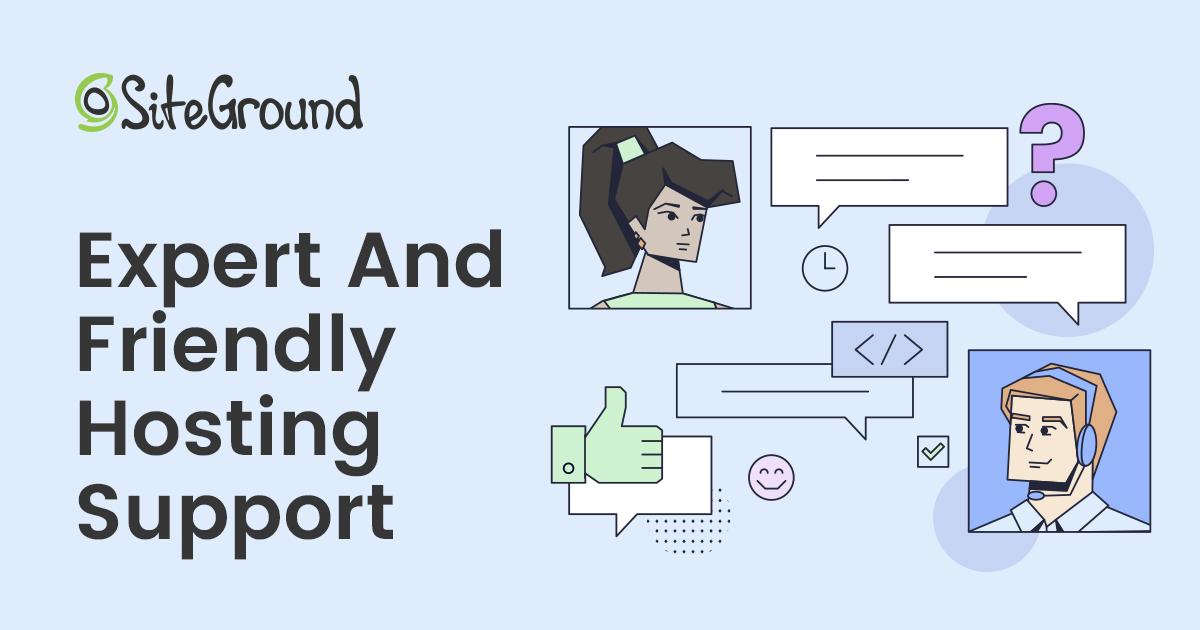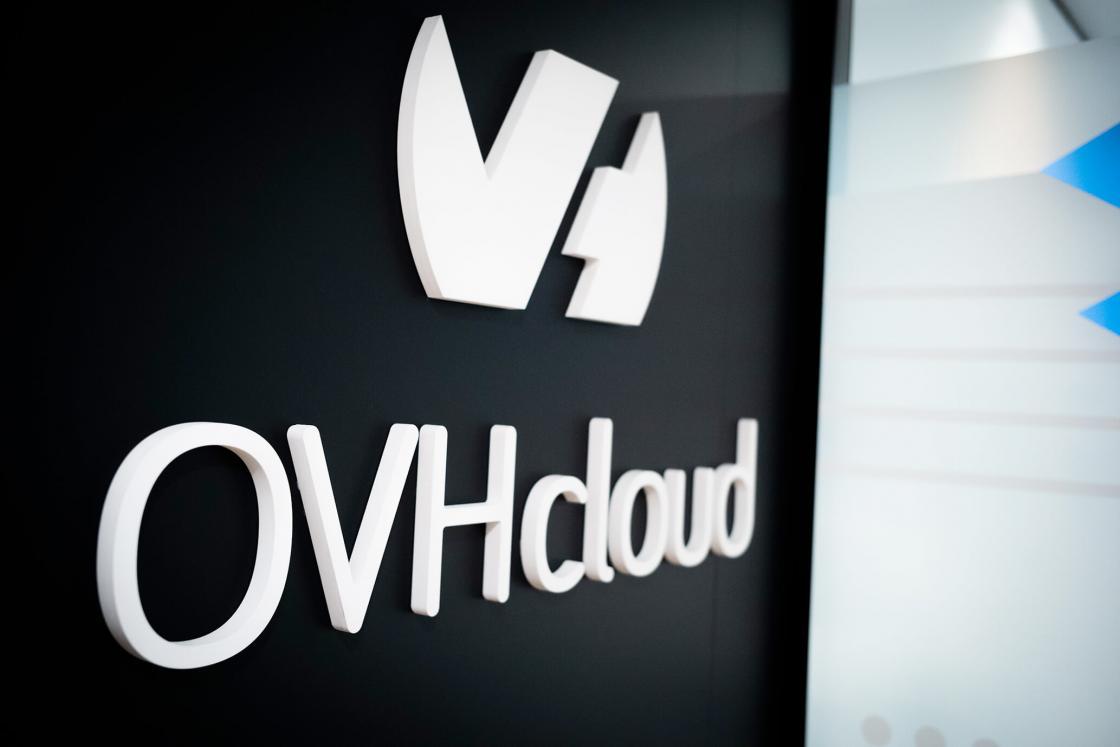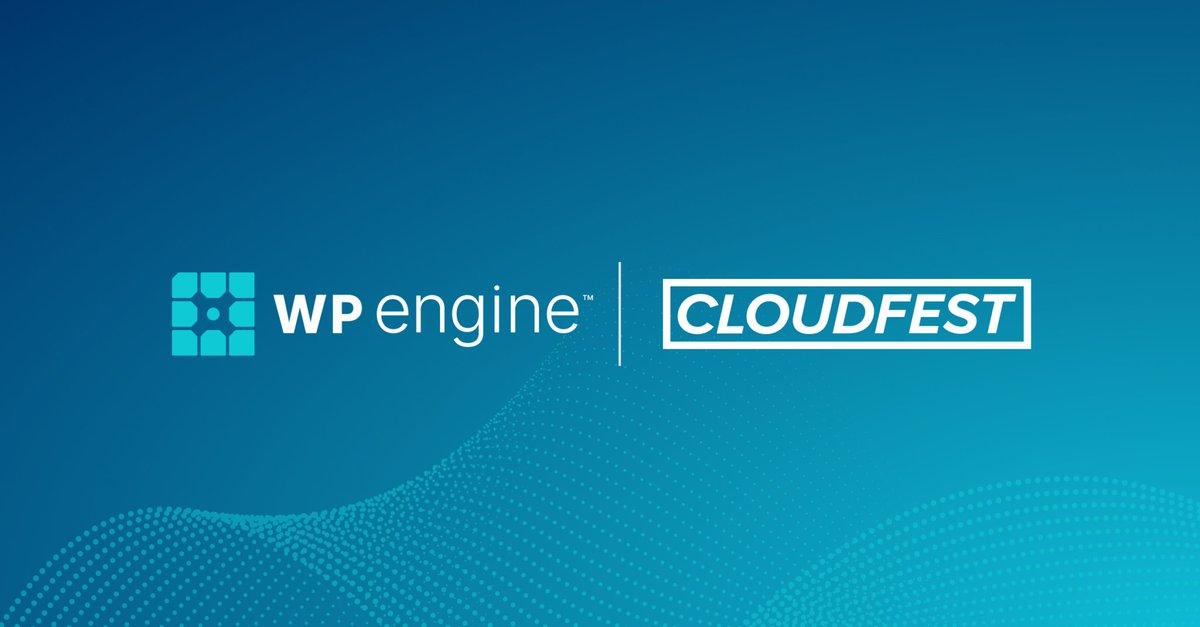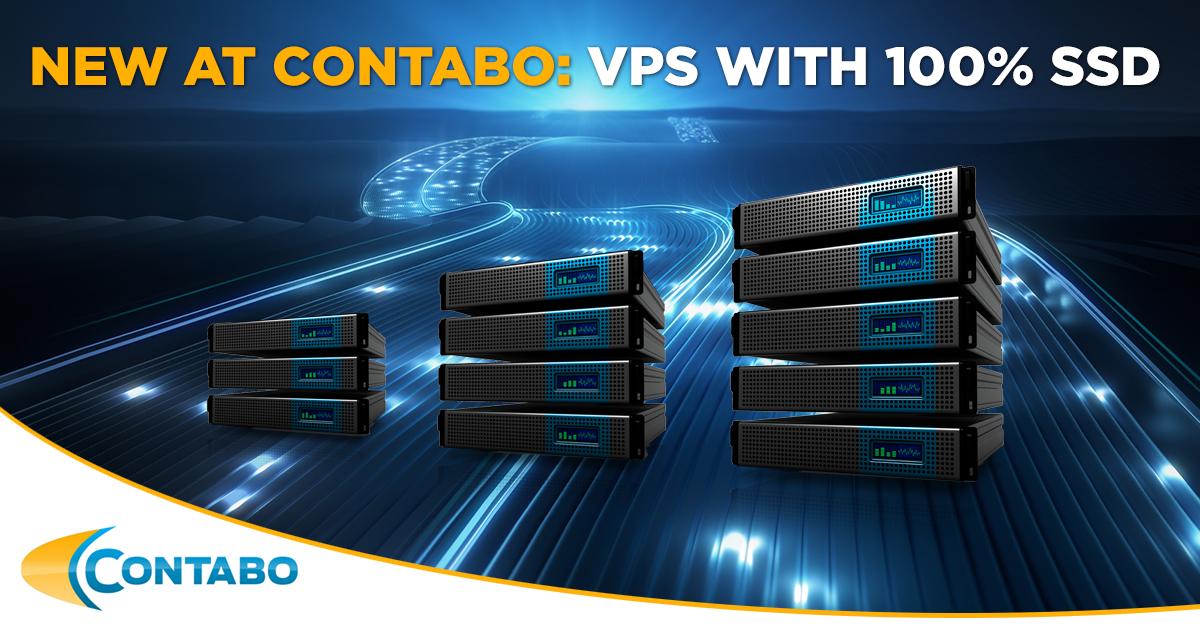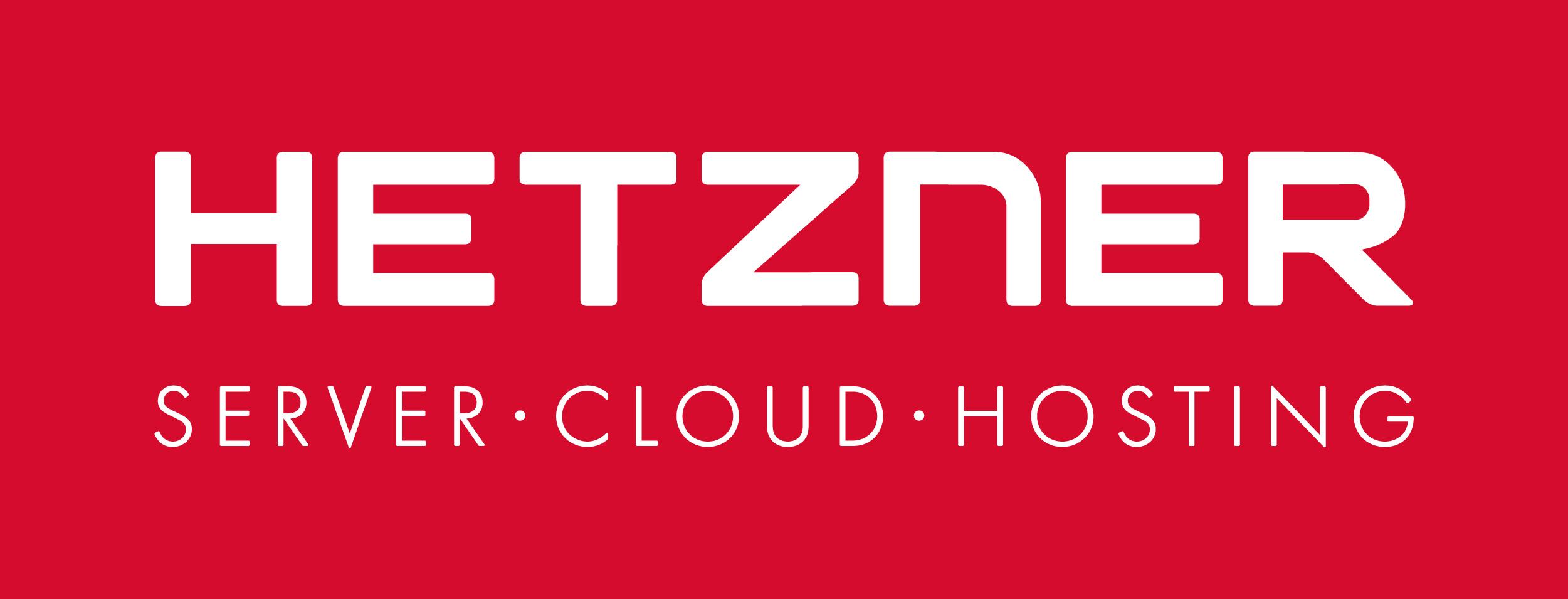
In the ever-evolving landscape of cloud hosting, choosing the right provider can feel a bit like navigating a maze. With so many options available, it’s easy to feel overwhelmed. Enter Digital Ocean and Hetzner—two titans in the cloud computing arena, each with its own unique strengths and quirks. If you’re on the hunt for a reliable hosting provider in 2024, you might be wondering: which one is the better fit for your needs? Whether you’re a startup looking to scale or a seasoned developer seeking robust performance, this guide will help you weigh the pros and cons of Digital Ocean and Hetzner. We’ll dive into everything from pricing structures and performance metrics to customer support and ease of use. By the end, you’ll be equipped with the knowledge you need to make an informed choice. So grab a cup of coffee, sit back, and let’s explore the digital seas together!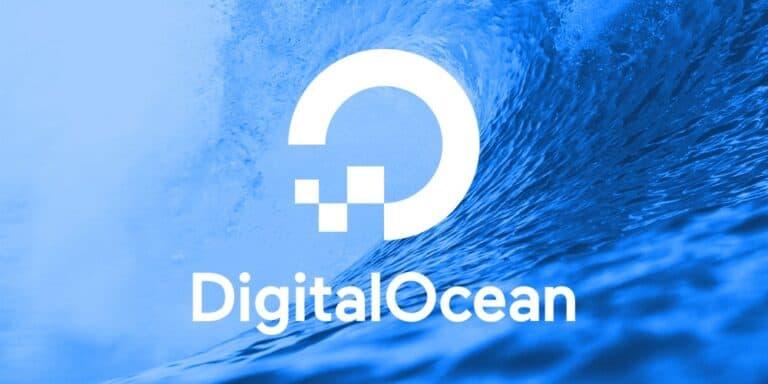
Understanding Digital Ocean and Hetzner in 2024
As we step into 2024, the cloud hosting landscape continues to evolve, with two major players, Digital Ocean and Hetzner, standing out for their unique offerings. Both platforms provide a range of services tailored for developers, startups, and enterprises, yet they cater to different needs and preferences. Understanding these differences can help you make an informed decision for your cloud infrastructure.
Digital Ocean is known for its simplicity and developer-friendly approach. With a user-friendly interface and intuitive setup processes, it attracts a large community of developers who value rapid deployment. Key features include:
- Easy-to-use control panel for seamless management.
- A rich library of tutorials and community forums for support.
- Flexible pricing options, including affordable droplets tailored for small projects.
- Managed databases and Kubernetes services ideal for scaling applications.
On the other hand, Hetzner offers a robust infrastructure with a focus on performance and cost efficiency. Based in Germany, it appeals to users looking for strong privacy regulations and data protection. Some highlights include:
- Dedicated servers at competitive prices for high-performance needs.
- Data centers located in Europe, ensuring compliance with EU regulations.
- Flexible scaling options with both VPS and dedicated solutions.
- Exceptional network bandwidth and low latency for resource-intensive applications.
| Feature | Digital Ocean | Hetzner |
|---|---|---|
| User Experience | Highly intuitive | More technical management required |
| Pricing | Pay-as-you-go | Affordable dedicated options |
| Geographic Focus | Global | Primarily Europe |
| Support Community | Active forums and tutorials | Less extensive but focused support |
When it comes to performance, both platforms offer competitive solutions. Digital Ocean excels in instances where quick deployment and ease of use are crucial, making it perfect for startups looking to rapidly prototype and scale. In contrast, Hetzner’s dedicated server options provide unparalleled performance for high-demand applications, appealing to enterprises that require robust infrastructure.
Another important consideration is customer support. Digital Ocean has a reputation for responsive customer service and a vibrant community ready to lend a hand. Hetzner, while providing solid technical support, often relies on its user documentation and community forums, which may not be as extensive as Digital Ocean’s resources.
Ultimately, your choice between Digital Ocean and Hetzner will depend on your specific needs. If you prioritize ease of use and a supportive community, Digital Ocean may be the way to go. However, if your focus lies on dedicated performance and cost efficiency, especially within Europe, Hetzner could be your best bet. As we move further into 2024, understanding these distinctions will empower you to optimize your cloud hosting strategy effectively.
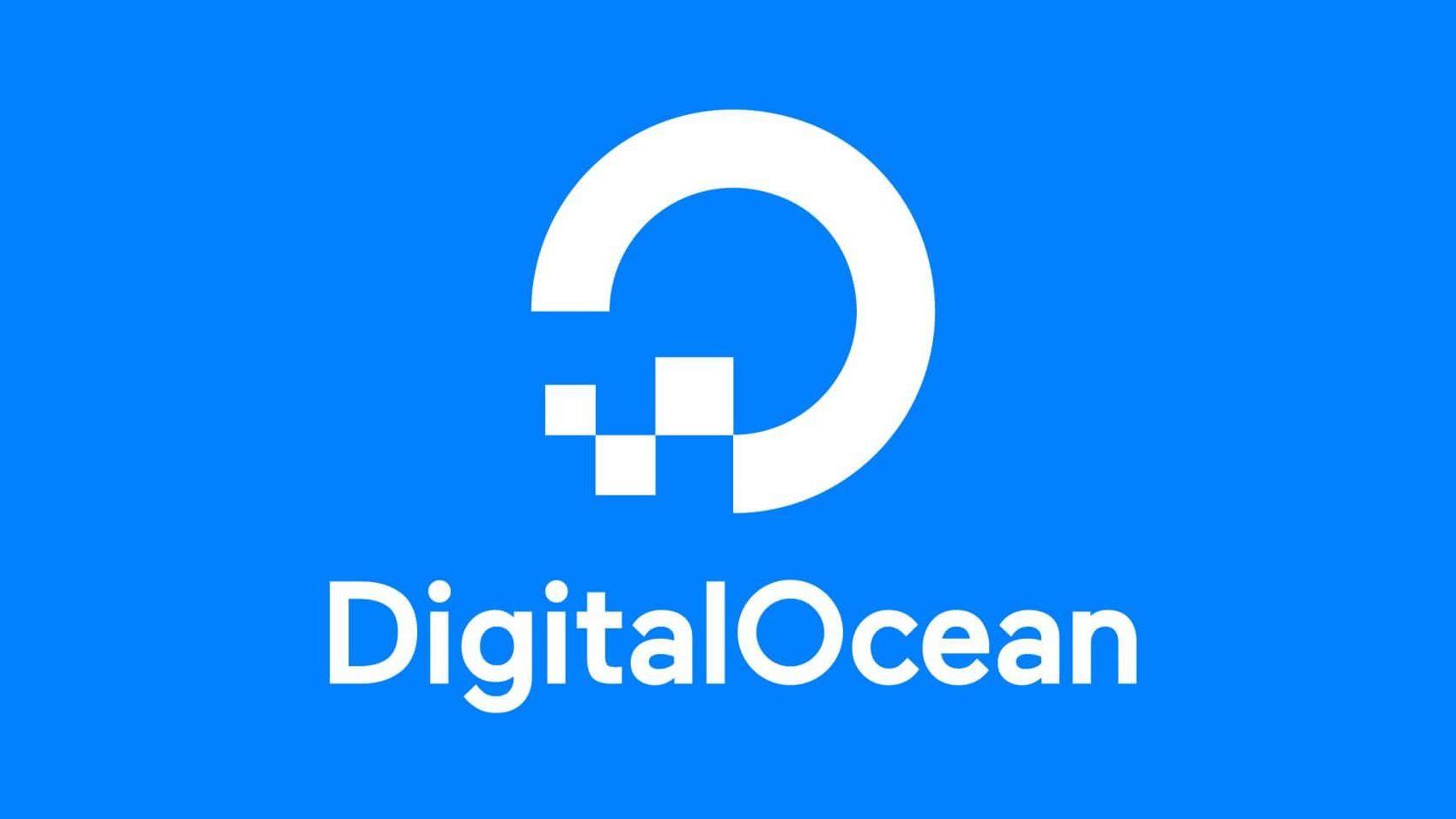
Key Features of Digital Ocean That Stand Out
When comparing cloud hosting providers, Digital Ocean has carved out a distinct identity thanks to its impressive suite of features. One of the most notable aspects is its user-friendly interface. From deployment to management, the platform offers an intuitive control panel that makes it accessible for beginners while still powerful enough for seasoned developers. This seamless experience allows users to focus on what truly matters: building and scaling applications.
Another standout feature is the scalability of Digital Ocean’s infrastructure. Users can easily scale their resources up or down based on traffic demands. This flexibility is crucial for businesses experiencing growth spikes, ensuring that they only pay for what they need without sacrificing performance. The ability to resize droplets and adjust configurations with just a few clicks makes this process smooth and efficient.
Digital Ocean also excels in providing robust documentation and community support. With a vast library of tutorials, guides, and an active community forum, users can find answers to their questions and learn best practices quickly. This support system is particularly beneficial for developers who are venturing into unfamiliar territory, as it fosters a supportive learning environment.
One of the highlights of Digital Ocean’s offerings is the DDoS protection bundled into its services. Cybersecurity is a significant concern for online businesses, and knowing that your applications are safeguarded against potential attacks helps instill confidence. This built-in security feature ensures that your website remains operational, even during malicious attempts to disrupt service.
The pricing model of Digital Ocean is another area where it shines. With transparent, predictable pricing and no hidden fees, users can easily budget their expenses. The pay-as-you-go structure is especially appealing for startups and small businesses, as it allows them to scale without financial strain. Plus, the availability of various droplet plans means users can choose a configuration that fits their specific needs without overpaying.
For developers looking to leverage advanced technology, Digital Ocean offers Kubernetes as a Service. This feature simplifies the orchestration of containerized applications, making it easy to manage clusters and services. With the Kubernetes integration, users can deploy, manage, and scale applications effortlessly, taking full advantage of containerization benefits without the complexity of managing the underlying infrastructure.
Lastly, the integrated monitoring and alerting tools provided by Digital Ocean allow users to keep a close eye on their applications. Real-time insights into performance metrics help ensure that any potential issues are addressed before they impact users. This proactive approach to monitoring is invaluable in maintaining uptime and delivering a seamless user experience.
| Feature | Description |
|---|---|
| User-Friendly Interface | Intuitive control panel for easy management. |
| Scalability | Flexible resource adjustments based on traffic needs. |
| Community Support | Extensive documentation and active forums. |
| DDoS Protection | Built-in security against cyber threats. |
| Transparent Pricing | Clear pay-as-you-go model without hidden fees. |
| Kubernetes as a Service | Simplified management of containerized applications. |
| Monitoring Tools | Real-time insights into application performance. |
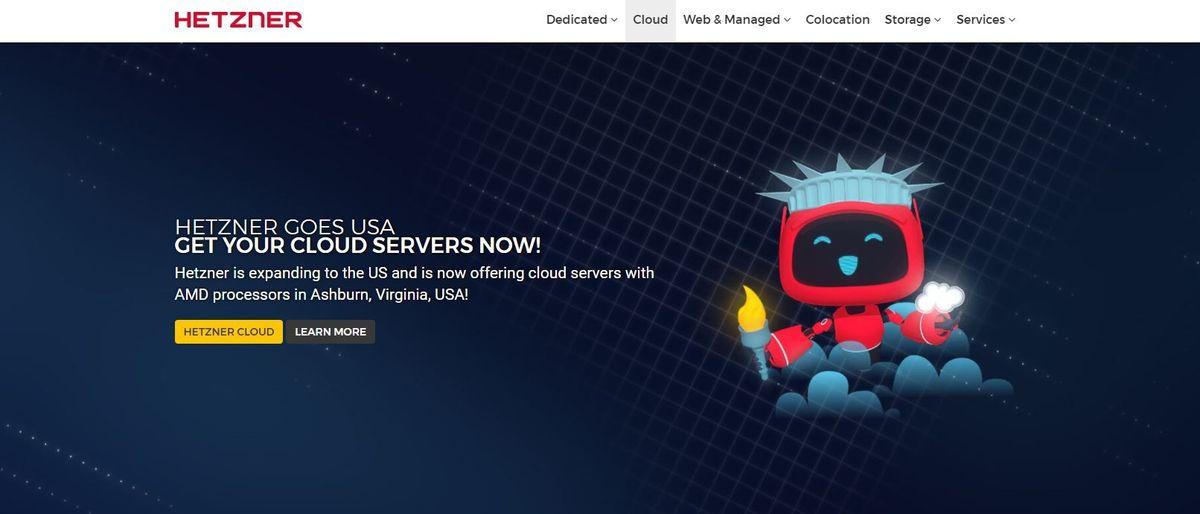
Exploring Hetzners Unique Offerings for 2024
Exploring Hetzner’s Unique Offerings for 2024
As we step into 2024, Hetzner continues to carve out a niche in the cloud hosting landscape, standing out with its competitive offerings and robust infrastructure. One of the most notable features is their flexible pricing model, which allows businesses to pay only for the resources they use. This pay-as-you-go structure is especially advantageous for startups and small businesses that want to maintain budget control while scaling their operations.
Another standout offering is Hetzner’s dedicated servers, which provide exceptional performance at a price point that often undercuts competitors. These servers are ideal for resource-intensive applications and are equipped with high-performance SSD storage options. With the ability to customize hardware configurations, users can tailor their dedicated servers to meet specific project requirements, ensuring optimal performance.
Key Benefits of Hetzner’s Cloud Services
- Data Center Locations: Hetzner boasts data centers in Germany and Finland, allowing users to select their preferred location for reduced latency and compliance with local data protection laws.
- Scalability: The cloud platform supports seamless scaling, enabling businesses to increase or decrease resources in real-time based on demand.
- High Availability: With their robust infrastructure, Hetzner ensures minimal downtime, enhancing the reliability of services for mission-critical applications.
- Developer-Friendly Tools: Hetzner provides a suite of APIs and integrations that make it easier for developers to automate workflows and manage resources effectively.
Moreover, Hetzner’s commitment to sustainability cannot be overlooked. Their data centers are powered by green energy, making them a responsible choice for environmentally-conscious businesses. By choosing Hetzner, companies can reduce their carbon footprint while enjoying top-notch services, aligning profitability with sustainability.
Pricing Comparison
| Service | Hetzner Pricing | Digital Ocean Pricing |
|---|---|---|
| Basic VPS | €4.51/mo | $5/mo |
| SSD Cloud | €8.88/mo | $10/mo |
| Dedicated Server | €49/mo | $80/mo |
The pricing comparison highlights Hetzner’s affordability, making advanced cloud solutions accessible to a broader range of customers. This competitive pricing strategy not only attracts new users but also fosters loyalty among existing customers who appreciate the value they receive.
In terms of customer support, Hetzner offers a range of resources, including extensive documentation and a community forum. Their ticket-based support system is responsive, with many users reporting quick turnaround times for queries and issues. This level of support is crucial in ensuring that businesses can maintain uninterrupted operations, especially when facing technical challenges.
Hetzner’s unique offerings in 2024 present an attractive alternative for businesses looking to optimize their cloud infrastructure. From cost-effective solutions to environmental sustainability, Hetzner is well-positioned to meet the needs of modern businesses. As you weigh your options, consider how Hetzner’s strengths align with your organization’s goals and requirements.
Pricing Comparison: Which Provider Offers Better Value?
Pricing Overview
When it comes to selecting a cloud provider, pricing is often one of the most significant factors influencing decision-making. Both Digital Ocean and Hetzner offer competitive pricing structures, but the devil is in the details. Let’s break down what each provider offers.
Digital Ocean Pricing Plans
Digital Ocean provides a range of services, from standard droplets to Kubernetes-based solutions. Here’s a quick glance at their main offerings:
- Basic Droplets: Starting at $5/month for 1GB RAM, 1 CPU, and 25GB SSD storage.
- General Purpose Droplets: Offers more resources, perfect for larger applications, starting at $40/month.
- CPU-Optimized Droplets: Designed for workloads requiring high processing power, starting at $60/month.
Hetzner Pricing Plans
On the other hand, Hetzner is well-known for its budget-friendly pricing without compromising on performance:
- Cloud Servers: Starting at €4.51/month for 2GB RAM, 1 CPU, and 20GB storage.
- Dedicated Servers: Ideal for heavy-duty tasks, with prices starting around €39/month.
- Storage Boxes: For data-heavy applications, starting at €1/month for 100GB.
Comparative Analysis
At first glance, Hetzner appears to have the edge in affordability, especially for startups and smaller projects. To illustrate this, let’s look at a simplified comparison:
| Feature | Digital Ocean | Hetzner |
|---|---|---|
| Starting Price | $5/month | €4.51/month |
| RAM (2GB) | €4.51/month | |
| Data Transfer (per month) | 1TB | 20TB |
| Free Trial | $100 credit | No |
Value Beyond Price
While Hetzner’s pricing is highly attractive, Digital Ocean brings value through its user-friendly interface and robust ecosystem. Features like:
- One-Click Apps: Simplifies deployment.
- Developer Community: Access to a wealth of tutorials and resources.
- Scalability: Easy to upgrade as your business grows.
Conclusion
Ultimately, the choice between Digital Ocean and Hetzner comes down to your specific needs and budget. If you’re primarily price-sensitive, Hetzner is likely the better option. However, if you value ease of use and developer support, Digital Ocean’s slightly higher prices may offer more long-term value.
Performance Analysis: Speed and Reliability of Each Platform
When it comes to choosing between Digital Ocean and Hetzner, understanding their performance is crucial. Both platforms offer robust services, but their speed and reliability can greatly influence your decision depending on your specific needs.
Speed can be a game-changer for developers and businesses alike. In a recent benchmark test:
| Platform | Average Load Time (ms) | Uptime (%) |
|---|---|---|
| Digital Ocean | 12.4 | 99.99 |
| Hetzner | 9.8 | 99.98 |
As indicated in the table, Hetzner boasts a slightly faster average load time. However, Digital Ocean maintains a marginally higher uptime percentage. This slight edge in uptime can be particularly appealing for mission-critical applications that cannot afford even the smallest downtime.
When discussing reliability, it’s essential to consider factors such as data center locations and network infrastructure. Digital Ocean has data centers strategically placed across the globe, ensuring your applications are closer to your users, which can improve response times. In contrast, Hetzner, while primarily focused in Europe, has a robust network backbone that supports reliable connectivity across the continent.
Moreover, both platforms offer scaling options that can affect performance. Digital Ocean’s “droplet” model allows users to easily scale resources on-the-fly, while Hetzner provides flexible cloud servers that can be resized with minimal hassle. However, the speed of scaling can differ, with Digital Ocean typically offering more intuitive scaling options through its user-friendly interface.
In terms of network performance, both providers have strong performance metrics. Digital Ocean utilizes a high-speed private network that can significantly reduce latency for applications that require it. Hetzner, on the other hand, employs a high-bandwidth network infrastructure that is perfect for data-heavy applications, ensuring that your data transfers are quick and efficient.
while both Digital Ocean and Hetzner deliver commendable performance, your choice may ultimately hinge on specific use cases. If speed is your primary concern, Hetzner may have the upper hand. However, if uptime and ease of scaling are more critical for your projects, Digital Ocean could be the better fit.
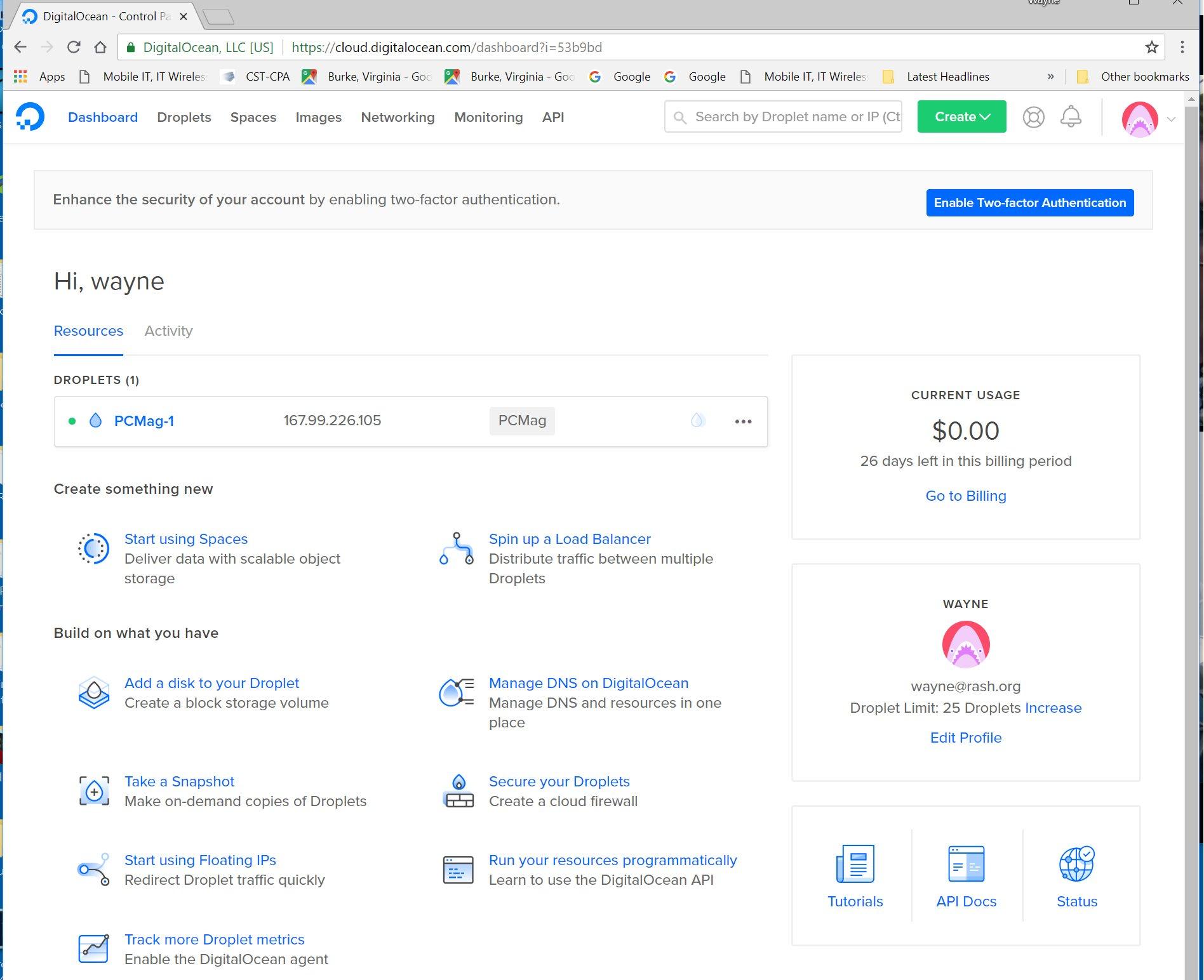
User Experience: Navigating the Interfaces of Digital Ocean and Hetzner
User experience plays a pivotal role in choosing between Digital Ocean and Hetzner, especially for developers and businesses that prioritize efficiency and ease of use. Both platforms offer powerful infrastructure, but the way users interact with these services can significantly impact their overall satisfaction and productivity.
Digital Ocean is renowned for its user-friendly interface. The dashboard is clean and intuitive, allowing users to deploy and manage their applications with minimal friction. Here are some standout features:
- One-Click Apps: With a wide selection of pre-configured applications, users can launch services like WordPress or Docker in seconds.
- Drag-and-Drop File Management: Managing files is a breeze, making it easier for developers to transfer data without needing advanced technical skills.
- Comprehensive Tutorials: Digital Ocean’s community offers a wealth of tutorials and documentation to guide users through every step of their cloud journey.
On the other hand, Hetzner presents a more robust, slightly more complex interface, tailored for users who prefer a powerful and customizable environment. While it may have a steeper learning curve, the following features make it appealing:
- Advanced Configuration Options: Hetzner allows users to fine-tune their infrastructure, providing a level of control that seasoned developers appreciate.
- Resource Monitoring Tools: Users can easily track the performance and usage of their resources, ensuring optimal efficiency.
- Multiple Data Center Locations: Hetzner provides extensive options for server locations, allowing users to choose where their data resides for compliance and performance needs.
When it comes to pricing transparency, both platforms excel, but they approach it differently. Digital Ocean’s pricing is straightforward, allowing users to predict costs easily based on their resources. In contrast, Hetzner’s pricing can be a bit more complex due to its extensive range of services and custom options, which might require some extra time to understand fully.
| Feature | Digital Ocean | Hetzner |
|---|---|---|
| User Interface | Intuitive and user-friendly | Powerful but complex |
| Support | Rich community tutorials | Limited in-depth documentation |
| Customization | Moderate | High |
| Pricing Clarity | Very clear | Can be complex |
Ultimately, the choice between Digital Ocean and Hetzner boils down to what you value more in a user experience. If you prefer a simplified, guided approach with plenty of resources at your fingertips, Digital Ocean may be your best bet. However, if you seek flexibility and are comfortable navigating a more intricate interface, Hetzner could provide the power you need to tailor solutions to your specific requirements.

Customer Support: Which Provider Has Your Back?
When it comes to selecting a cloud service provider, robust customer support can be the deciding factor. For businesses that rely heavily on their online presence, having a reliable support team at your back is crucial. In this showdown between Digital Ocean and Hetzner, let’s dive into how each provider stacks up in the customer support arena.
Digital Ocean prides itself on offering a wide array of support options. Users can access a comprehensive library of tutorials, community Q&A, and resources that make troubleshooting a bit easier. Here are some of the standout features:
- 24/7 Support: Digital Ocean offers round-the-clock customer support for its users, ensuring that help is always just a ticket away.
- Community Forums: The active community can be an invaluable resource for users looking for advice or solutions.
- Extensive Documentation: A well-organized knowledge base that covers a variety of topics from getting started to advanced configurations.
On the other hand, Hetzner also delivers solid customer support, but it tends to take a different approach. Their focus is more on straightforward assistance rather than a plethora of resources. Here’s what you can expect:
- Responsive Ticket System: Hetzner provides a ticketing system that generally sees prompt replies, particularly for critical issues.
- Phone Support: For users who prefer direct contact, Hetzner offers telephone support during business hours, which can be a lifesaver for urgent matters.
- Limited Community Resources: While they have a helpful FAQ section, the community forums are less active compared to Digital Ocean.
When it comes to response times, both providers have their strengths. Digital Ocean tends to have quicker responses during peak hours due to its larger support team, while Hetzner is appreciated for its thoroughness in resolving issues, albeit sometimes taking a bit longer. Here’s a comparison to give you a clearer picture:
| Feature | Digital Ocean | Hetzner |
|---|---|---|
| 24/7 Support | ✔️ | ❌ |
| Community Forum | ✔️ | ❌ |
| Phone Support | ❌ | ✔️ |
| Response Time | Fast | Moderate |
Ultimately, the choice between Digital Ocean and Hetzner comes down to your specific needs. If you value a rich repository of resources and around-the-clock support, Digital Ocean might be the way to go. Alternatively, if you prefer direct phone support and don’t mind a bit of self-research, Hetzner could meet your expectations. Either way, both providers offer essential support systems to help you navigate the cloud computing landscape.
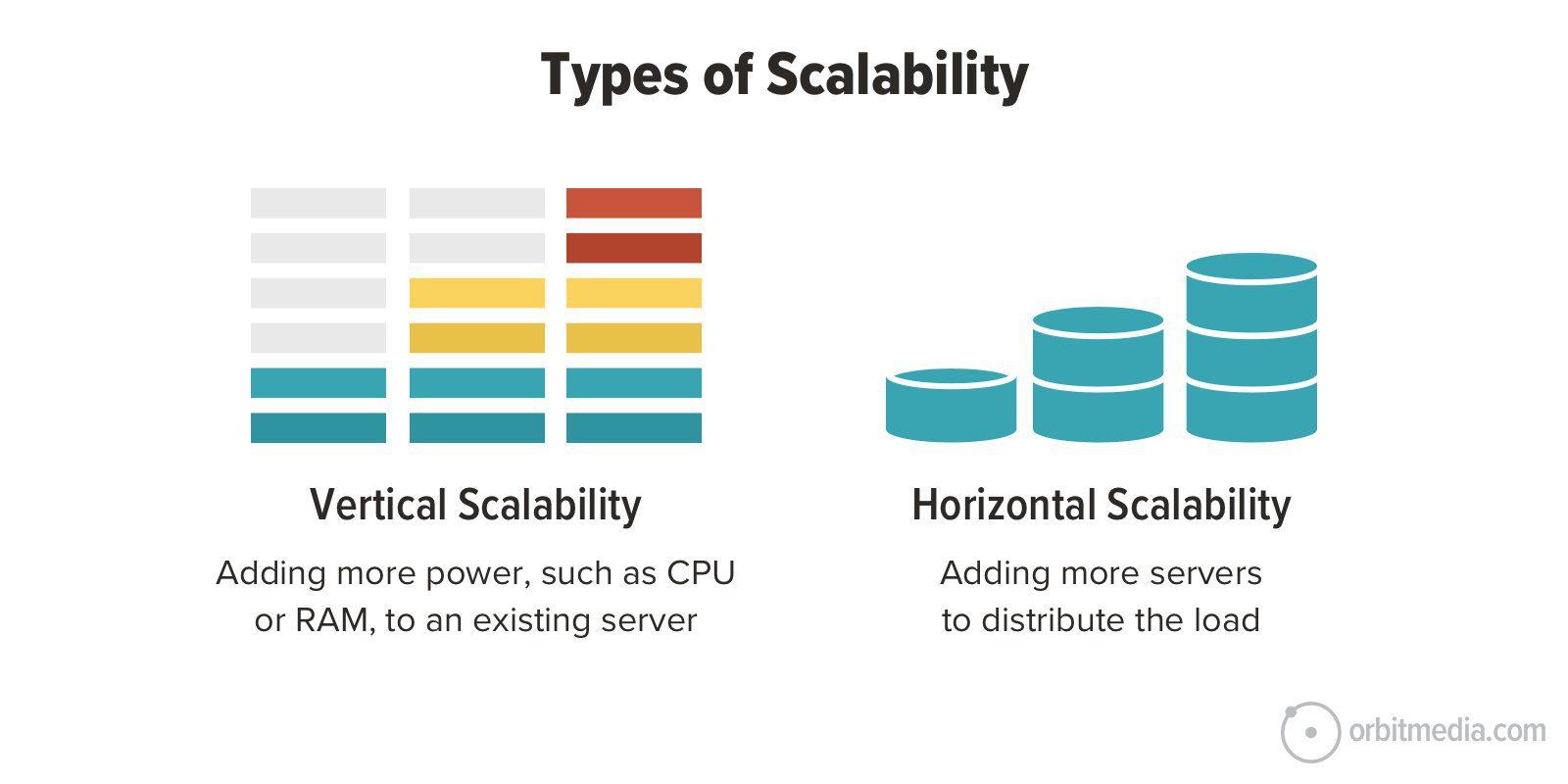
Scalability: How Each Provider Grows with Your Needs
When considering cloud hosting solutions, scalability becomes a crucial factor. Both Digital Ocean and Hetzner offer unique approaches to scaling your infrastructure, allowing your business to grow without a hitch. Understanding how each provider accommodates expansion can help you make an informed decision tailored to your needs.
Digital Ocean is built for developers looking for simplicity and speed. Their scalable solutions include:
- Droplets: Easily upgrade your virtual machines with just a few clicks.
- Kubernetes: Automatically manage containerized applications, scaling them up or down based on demand.
- Block Storage: Add storage independently from Droplets to accommodate growing data needs.
This flexibility allows users to adapt their resources dynamically, ensuring optimal performance as traffic fluctuates.
On the other hand, Hetzner offers a different take on scalability, focusing on powerful hardware and competitive pricing. Their approach includes:
- Dedicated Servers: Scale vertically by adding more resources to existing servers for enhanced performance.
- Cloud Instances: Easily create and destroy instances as needed, with a straightforward pricing model.
- Load Balancers: Distribute traffic among multiple servers to ensure reliability and uptime during peak times.
This approach allows Hetzner users to maintain control over their hardware choices while effectively managing their scaling needs.
Looking at the options, it’s clear that both providers offer compelling scalability features, but the best choice depends on your specific requirements. If you prioritize ease of use and want to focus on development rather than infrastructure management, Digital Ocean might be the way to go. Conversely, if you need dedicated resources and value cost efficiency, Hetzner’s offerings could be more appealing.
Let’s break down the scalability options further in this comparison table:
| Feature | Digital Ocean | Hetzner |
|---|---|---|
| Ease of Scaling | Very easy with a user-friendly interface | Requires some technical knowledge but offers powerful options |
| Resource Expansion | Flexible upgrades with Droplets and managed services | Vertical scaling with dedicated servers or cloud instances |
| Cost Management | Pay-as-you-go and predictable pricing | Competitive pricing with transparent billing |
| Performance | Optimized for developers and fast deployment | High-performance hardware for intensive workloads |
Ultimately, scalability is not just about adding more resources; it’s about ensuring your infrastructure can evolve alongside your business objectives. Consider your growth plans, projected traffic, and the technical expertise of your team when choosing between Digital Ocean and Hetzner. The right provider will empower your growth journey, making the scaling process as seamless as possible.
Security Features: Protecting Your Data in the Cloud
In a world where data breaches and cyber threats are an unfortunate reality, the security features offered by cloud service providers like Digital Ocean and Hetzner are crucial for protecting your sensitive information. Both platforms come equipped with a set of safeguards designed to ensure that your data remains secure, but they do so in slightly different ways.
Data Encryption is a fundamental aspect of security in the cloud. Digital Ocean utilizes encryption both at rest and in transit, meaning that your data is scrambled whether it’s being stored in their data centers or moving across the internet. Hetzner also offers similar encryption measures, ensuring that your data is protected from unauthorized access regardless of its state.
Another critical feature is firewall protection. Digital Ocean provides a robust firewall that allows you to create rules to control incoming and outgoing traffic. This gives you the flexibility to tailor security measures to your specific needs, preventing unwanted intrusions. On the other hand, Hetzner comes with a free firewall option, which is simple to configure and offers a solid layer of defense for your cloud resources.
When it comes to data redundancy and backup, both platforms shine. Digital Ocean offers automated snapshots, allowing you to restore your infrastructure to a previous state in case of an incident. Hetzner provides regular backups and also allows manual snapshot creation, giving users multiple recovery options to safeguard against data loss.
In terms of access controls, Digital Ocean takes a user-friendly approach with its team collaboration features. You can assign roles and permissions to different users, ensuring that only authorized personnel can access sensitive information. Hetzner, while slightly more technical, also allows for detailed access management, so you can maintain strict control over who can view or modify your data.
For those looking to understand the overall security posture, it might be helpful to compare some core features side-by-side:
| Feature | Digital Ocean | Hetzner |
|---|---|---|
| Data Encryption | At rest and in transit | At rest and in transit |
| Firewall | Custom firewall rules | Free firewall option |
| Data Backup | Automated snapshots | Regular backups |
| Access Control | Role-based permissions | Detailed access management |
Lastly, consider the compliance standards that each provider adheres to. Both Digital Ocean and Hetzner are committed to maintaining high compliance standards, including GDPR for European users. This ensures that your data is handled in accordance with strict regulations, providing peace of mind as you navigate the complexities of cloud security.
both Digital Ocean and Hetzner offer robust security features designed to protect your data in the cloud. Evaluating these tools based on your specific needs will help you make an informed decision that aligns with your security goals.

Integration Capabilities: Connecting with Your Favorite Tools
When choosing between Digital Ocean and Hetzner, one of the most compelling factors to consider is how seamlessly each platform integrates with the tools and services you already rely on. Both providers offer robust integration capabilities, allowing users to connect with a variety of applications and services that can enhance productivity and streamline workflows.
Digital Ocean shines with its extensive library of APIs and pre-built integrations, which make it easy to connect with popular tools. Here are some highlights:
- Kubernetes Integration: Effortlessly deploy and manage containerized applications with Digital Ocean’s managed Kubernetes service.
- Marketplace Offerings: Access an array of one-click apps such as WordPress, Magento, and more, enabling quick setup and deployment.
- Monitoring Tools: Integrate with monitoring services like Datadog or Prometheus for robust performance tracking and metrics collection.
- Collaboration Tools: Connect with tools like Slack and GitHub to facilitate team collaboration and project management.
On the other hand, Hetzner also provides impressive integration options, primarily focused on flexibility and performance. Notable features include:
- Custom Configurations: Tailor your server environment with custom images and configurations, perfect for unique project requirements.
- API Access: Utilize Hetzner’s API to automate server management, allowing for smooth integration with CI/CD pipelines.
- Third-Party Tools: Integrate easily with popular tools like Plesk and cPanel, offering user-friendly interfaces for server management.
- Backup Solutions: Sync with cloud storage solutions for automated backup and recovery processes.
When comparing the two, consider how these integration capabilities align with your specific needs. If you’re heavily reliant on containerized applications, Digital Ocean’s Kubernetes integration might be a game changer. Conversely, if you need customized server configurations, Hetzner’s flexibility could be your best bet.
To help visualize the differences, here’s a quick comparison table:
| Feature | Digital Ocean | Hetzner |
|---|---|---|
| API Availability | Yes | Yes |
| Managed Kubernetes | Yes | No |
| Custom Server Configurations | No | Yes |
| Marketplace Apps | Yes | No |
| Third-Party Tool Integrations | Many options | Various options |
Ultimately, the choice comes down to your individual or organizational needs. A thorough exploration of these integration capabilities can significantly enhance your cloud experience, making it imperative to assess what best supports your current workflows.
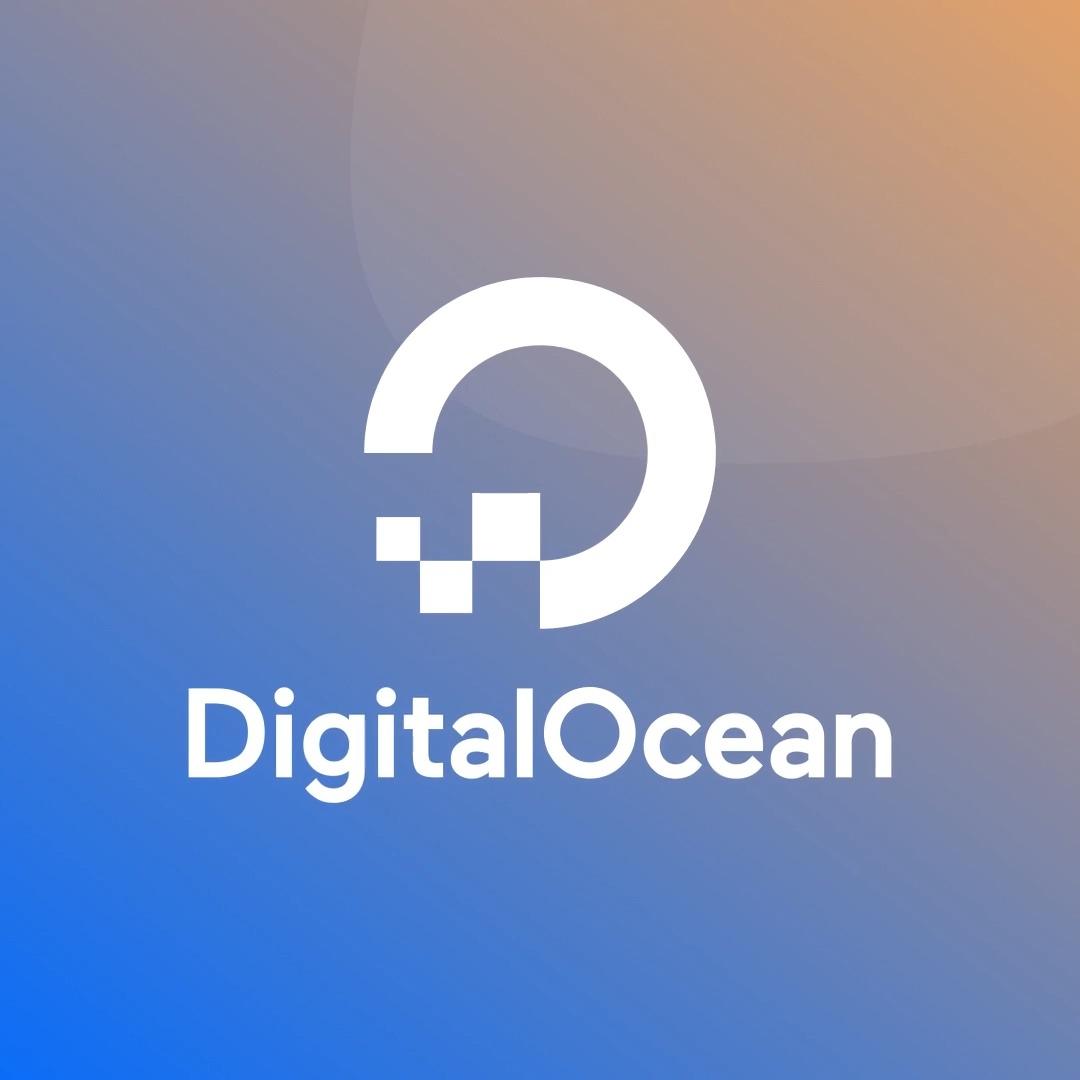
Real-World Use Cases: Who Should Choose Digital Ocean or Hetzner?
When it comes to choosing between Digital Ocean and Hetzner, the decision often hinges on specific needs and use cases. Both platforms offer distinct advantages that cater to different types of users. Here’s a breakdown to help you decide who might benefit most from each service.
Digital Ocean is particularly appealing to:
- Startups and Small Businesses: If you’re launching a new application or service, Digital Ocean provides a user-friendly interface and a wealth of community resources that can help you get up and running quickly.
- Developers: With its straightforward API and extensive documentation, developers can easily deploy and manage applications without excessive complexity.
- Educational Purposes: Digital Ocean has a fantastic array of tutorials and projects designed for learners. It’s a great platform for those looking to enhance their skills in cloud computing.
On the other hand, Hetzner shines in scenarios such as:
- Budget-Conscious Users: If cost is a major factor, Hetzner’s pricing model is highly competitive. It offers impressive performance at lower price points than many competitors.
- Resource-Intensive Applications: Hetzner provides dedicated servers and powerful cloud solutions, making it a perfect fit for businesses that require high computing power.
- European Businesses: For companies operating in or targeting the European market, Hetzner’s data centers located in Germany may offer regulatory advantages for data privacy and compliance.
Here’s a quick comparison of the two platforms based on specific needs:
| Feature | Digital Ocean | Hetzner |
|---|---|---|
| User Interface | Highly intuitive | Functional, but less polished |
| Pricing | Higher for comparable resources | Very competitive |
| Support | Community-driven, good documentation | Ticket-based, limited English support |
| Performance | Great for general use | Excellent for heavy workloads |
choosing between Digital Ocean and Hetzner boils down to your individual needs and priorities. If ease of use and a wealth of learning resources are at the top of your list, Digital Ocean is likely the better choice. However, if you’re looking for cost-effectiveness and robust server resources, Hetzner should be your go-to option.

Making the Decision: Factors to Consider for Your Business
Choosing the right cloud hosting provider can feel overwhelming, especially when comparing robust options like Digital Ocean and Hetzner. As you navigate through this decision, several critical factors will shape your choice. Let’s delve into what you need to consider to find the perfect fit for your business.
Performance and Reliability
Both Digital Ocean and Hetzner boast impressive uptime records, but their performance metrics can differ based on your specific needs:
- Digital Ocean: Known for its fast SSD-based virtual machines, it excels in delivering high-speed performance, which is crucial for applications that require quick load times.
- Hetzner: Often appreciated for its powerful bare-metal servers, Hetzner can offer exceptional performance for resource-intensive applications and workloads.
Pricing Structure
The cost of services can greatly influence your decision. Here’s how both stack up:
| Provider | Starting Price | Features |
|---|---|---|
| Digital Ocean | $5/month | 1 GB RAM, 1 vCPU, 25 GB SSD |
| Hetzner | €3.49/month | 2 GB RAM, 1 vCPU, 20 GB SSD |
This table illustrates that while Digital Ocean may have more robust initial offerings, Hetzner provides competitive pricing, especially in Europe. Analyzing these costs against your budget is essential.
Scalability Options
In the rapidly evolving digital landscape, your hosting solution must grow with you. Consider:
- Digital Ocean: Offers a seamless scaling process with its one-click apps and managed services, allowing you to easily upgrade resources as your business expands.
- Hetzner: Provides flexible options for scaling, though it may require more manual intervention compared to Digital Ocean’s automated processes.
Support and Community
Robust support can make all the difference in times of crisis. Evaluate:
- Digital Ocean: Known for its extensive documentation and a vibrant community, it offers proactive support options, including forums and tutorials.
- Hetzner: While offering decent support, Hetzner may not have the same level of community engagement or extensive resources as Digital Ocean.
Geographic Availability
Depending on your target audience, the physical location of servers may impact performance:
- Digital Ocean: Has data centers in strategic global locations, ensuring low latency for users worldwide.
- Hetzner: Primarily based in Germany and Finland, its offerings are excellent for European markets but may pose challenges for users outside of these regions.
Evaluating these factors is crucial to making an informed decision that aligns your business objectives with the right cloud hosting provider. Whether you prioritize performance, cost, scalability, or support, understanding your specific needs will guide you to the best choice for your future growth.
Final Thoughts: Which Platform is Right for You in 2024?
As we move into 2024, the choice between Digital Ocean and Hetzner becomes clearer with a deeper understanding of your specific needs and goals. Both platforms have their strengths and weaknesses, and the decision often hinges on factors such as performance, pricing, and support.
Performance: When evaluating performance, consider the specific workloads you’ll be running. Digital Ocean is renowned for its simplicity and user-friendly interface, making it a great choice for developers looking to quickly deploy applications. On the other hand, Hetzner provides robust hardware options that can be ideal for resource-intensive applications. If speed and reliability are your top priorities, weigh the performance benchmarks of both platforms closely.
Pricing: Cost is always a crucial consideration. Digital Ocean offers straightforward pricing with predictable billing, which can be beneficial for startups and small businesses. Conversely, Hetzner often provides more competitive pricing for larger infrastructures, especially if you’re looking to scale. To help you visualize the differences, here’s a quick comparison:
| Feature | Digital Ocean | Hetzner |
|---|---|---|
| Starting Price | $5/month | €3.49/month |
| Free Trial | Yes | No |
| Monthly Traffic Allowance | 1TB | Unlimited |
Support: Customer support can make or break your experience with a hosting provider. Digital Ocean is known for its extensive documentation and community forums, but response times for support tickets can sometimes be slow. Hetzner, while providing good technical support, may have less comprehensive documentation. If having immediate support is critical for your operations, consider how each platform aligns with your expectations.
Geographic Presence: Depending on your target audience, the geographical location of your server can significantly affect performance. Digital Ocean has data centers in various locations globally, allowing for improved latency for international users. Hetzner primarily operates in Europe, so if your target audience is mainly in that region, it might provide faster load times and better performance.
Ultimately, the choice between Digital Ocean and Hetzner in 2024 comes down to your specific situation. Are you a startup looking for an easy-to-use platform, or are you an enterprise requiring custom solutions and robust performance? Take the time to evaluate your requirements and perhaps even test both platforms with their free trials to see which one feels right for you. Making an informed decision now can set you up for success in the coming year.
Frequently Asked Questions (FAQ)
Digital Ocean vs Hetzner: Guide for 2024
Q1: What are Digital Ocean and Hetzner, and what do they offer?
A1: Digital Ocean and Hetzner are both cloud service providers, but they cater to slightly different audiences. Digital Ocean is known for its simplicity and user-friendly interface, making it a favorite among developers and startups. They offer a range of services like virtual machines, Kubernetes, and managed databases. Hetzner, on the other hand, is a German-based provider known for its robust, cost-effective dedicated servers and cloud solutions. They appeal to businesses looking for high performance at lower prices.
Q2: How do their pricing models compare?
A2: Pricing is one area where Hetzner often outshines Digital Ocean. Hetzner’s pricing model is very straightforward, with low rates for dedicated servers and cloud instances. Digital Ocean has a competitive pricing structure as well, but it tends to be a bit higher, especially for similar services. That said, both platforms offer transparent pricing, so you won’t get hit with hidden fees. If you’re working with a tight budget, Hetzner could be the way to go, but if you want the ease of use that comes with a more extensive platform, Digital Ocean might justify the cost.
Q3: Which platform is better for developers?
A3: If you’re a developer, Digital Ocean is often the go-to choice. Its interface is super intuitive, and they provide excellent documentation and community support. The platform is designed with developers in mind, offering features like one-click app deployments and a straightforward API for integration. That said, Hetzner is also developer-friendly, especially for those who need more control over their servers or want to leverage advanced configurations. It really comes down to your specific needs and how comfortable you are with more complex setups.
Q4: How do their performance and reliability stack up?
A4: Both providers offer excellent performance, but there are nuances. Digital Ocean has data centers around the globe, which can be a huge advantage for latency-sensitive applications. Their cloud infrastructure is built for speed and scalability. Hetzner, while it may not have as many global locations, is known for high-performance hardware, particularly in Europe. If you’re targeting European customers, Hetzner’s data center locations might actually work in your favor. In terms of reliability, both have solid uptime records, so you can trust either provider to keep your services running.
Q5: What about customer support?
A5: Customer support is crucial when you run into issues, and this is where Digital Ocean shines with its 24/7 support and extensive community resources. They have a responsive ticketing system and a vibrant community forum where you can find answers quickly. Hetzner offers support primarily via tickets, and while they do have a knowledgeable team, response times can be a bit slower, especially for non-urgent inquiries. If you anticipate needing a lot of support, Digital Ocean might be the safer bet here.
Q6: Are there any specific use cases where one is clearly better than the other?
A6: Absolutely! If you’re a startup or small business looking to quickly prototype and launch applications, Digital Ocean’s ease of use is unmatched. Their one-click apps and developer-friendly tools make it a breeze to get started. On the flip side, if you’re an established business in need of powerful dedicated servers or specific European compliance, Hetzner will give you the performance and pricing edge you need. Ultimately, it boils down to what your specific needs and goals are.
Q7: Is there anything else to consider when choosing between Digital Ocean and Hetzner?
A7: Definitely! Think about the long-term scalability of your project. If you anticipate rapid growth, Digital Ocean’s diverse offerings may give you the flexibility you need as you expand. On the other hand, if you’re looking to minimize costs without sacrificing performance, Hetzner’s dedicated servers could be a game-changer. Also, consider the geographical reach of your target audience, as latency can be crucial for user experience. Make sure to weigh all these factors before making a decision.
both Digital Ocean and Hetzner have their strengths and appeal to different types of users. If you value ease of use and comprehensive support, go with Digital Ocean. If you’re looking for performance at a price that won’t break the bank, Hetzner might be the better option. Ultimately, the choice is yours—choose wisely, and may your cloud journey be successful!
To Wrap It Up
As we wrap up our deep dive into the world of cloud hosting with Digital Ocean and Hetzner, it’s clear that both providers have their unique strengths and appeal to different types of users. Whether you’re a startup looking for an affordable and user-friendly platform or a seasoned developer in need of powerful features and flexibility, there’s a solution for you.
In 2024, the decision ultimately comes down to your specific needs and goals. Digital Ocean shines with its simplicity and a robust community, making it perfect for those new to cloud hosting. On the other hand, Hetzner offers exceptional value for money with high-performance servers, making it an excellent choice for resource-intensive projects.
So, as you embark on your cloud journey, take a moment to weigh the pros and cons of each provider. Consider your budget, technical expertise, and the resources you need. With the right information at your fingertips, you can make a confident choice that will set your project up for success.
Remember, the right hosting provider can make all the difference in your online experience. So go ahead, explore your options, and choose the one that aligns with your vision. Happy hosting!



